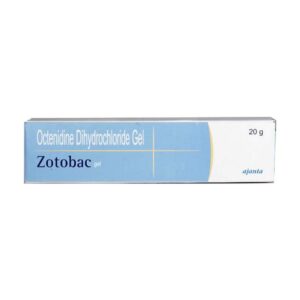OCTENIDINE DIHYDROCHLORIDE
OCTENIDINE DIHYDROCHLORIDE: Octenidine dihydrochloride is a broad-spectrum antiseptic drug used for the prevention and treatment of infections. It is commonly found in various medical and personal hygiene products such as mouthwashes, wound cleansers, and skin disinfectants.
The mechanism of action of octenidine dihydrochloride involves its ability to disrupt and destroy the outer membrane of bacteria, fungi, and some viruses. This leads to the leakage of cellular components and eventual cell death. Octenidine has shown effectiveness against a wide range of microorganisms, including methicillin-resistant Staphylococcus aureus (MRSA), Escherichia coli, Candida albicans, and herpes simplex virus.
The dosage and method of administration of octenidine dihydrochloride depend on the specific product and its intended use. For instance, mouthwashes typically recommend using it undiluted and rinsing the mouth for about 30 seconds, while wound cleansers may require dilution with sterile water before use. It is essential to follow the instructions provided by the manufacturer or healthcare professional for safe and effective use.
Like any medication, octenidine dihydrochloride can cause side effects. However, they are generally rare and mild. Possible side effects include skin irritation, allergic reactions, burning or stinging sensation at the application site, and discoloration of teeth or dental restorations with prolonged use of mouthwashes. It is advisable to discontinue use and consult a healthcare professional if any severe or persistent side effects occur. Individuals with a known hypersensitivity to octenidine dihydrochloride should avoid using products containing it.

